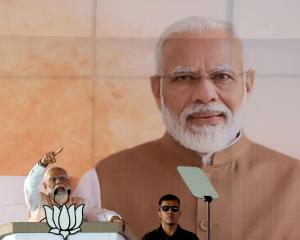Mainstream New Zealand must deal with the Australian reality and not an imagined special relationship, writes Brian Stoddart.
The hysteria that underpins the current New Zealand-Australia stoush over prisoner deportation stems from a paradox.
Talk of a ''special bond'' has always been paired with a deep, perennial mutual misunderstanding.
The ''1200'' as to why New Zealand should not join the Australian federation over a century ago were always about more than distance.
From the beginning, an inherently different cultural, political and economic approach to doing things was never understood by either side, and that remains unchanged.
Columnist comments about Australia's intended deportation of ''New Zealand'' criminals range from the aggrieved (the ''special bond'' is being ignored) to Chris Trotter's provocative conspiracy theory that New Zealand is being victimised for challenging Australia's asylum seeker policy. (ODT, 4 10.15).
Neither view, nor those in between, gets the essence.
Two interrelated factors drive Australia's approach to the outside world and have done since white settlement: economic security and cultural anxiety.
John Howard's reviled policy revisions that began disadvantaging Kiwis resident in Australia stemmed directly from financial stress that followed the Asian financial meltdown.
The same is true now, as commodity price collapses grind down the Australian economy.
Governments of all persuasions now subscribe to the mantra of increased accountability and efficiency, so in these situations immediately pursue easy savings.
For Mr Howard, Kiwis were part of that.
The same is now true for Tony Abbott, followed by Malcolm Turnbull.
And that approach is more about assuaging the home political audience than repairing budget bottom lines.
Cutting Kiwi benefits would no more save the Australian economy then than returning a couple of hundred ''Kiwi'' criminals will now solve either the budget or the overcrowded jails crises.
The Government has to be seen to be doing something, the actual results or benefits don't really matter.
That is where the cultural bit comes in.
It is too easy to say that much of Australia was built on a convict past while New Zealand was not, but the two cultures are manifestly different.
It is 50 years, for example, since Keith Sinclair advanced his idea that race relations were better in New Zealand than in South Africa, South Australia or South Dakota.
He might have thought differently now, but he did demonstrate that New Zealand and Australia think differently.
Modern developments around the Treaty of Waitangi have outstripped those relating to native title in Australia, for example, despite the efforts of reformers like politician Fred Chaney and now Chief Justice Robert French.
Indigenous incarceration rates in both countries are problematic, but the approaches to dealing with them significantly different.
Australia and New Zealand are frequently poles apart.
Too few New Zealand commentators, for example, explore the deeper reasons behind both major Australian political parties supporting an asylum-seeker policy that sends people to places like Christmas Island and Manus, and produces the astonishingly ill-conceived Cambodia project that sends just four asylum seekers there at a cost of $55million to Australian taxpayers.
The main political parties know electoral support sits behind the policy, hence Opposition leader Bill Shorten's win on the issue at the recent Labor Party conference.
That stems from an inherent Australian conservatism about nationality.
Australia has been officially multicultural since Gough Whitlam killed the White Australia policy in 1972-3, but the results have yet to surface in the Australian mainstream.
There are almost no Asian politicians, sports stars, business leaders or anything else. Yes, that takes time, but time is slipping.
New Zealand probably responds more quickly and positively to opportunities in emerging Asian sites like China and India than does Australia.
With India, for example, federal and state governments alike have difficulty dealing with major investment projects put up by, say, the Adani group with its Queensland coal mine.
That difficulty is as much about cultural uncertainty as about protecting the national interest, and is aggravated when the economic chips fall badly.
New Zealand, for example, is much more open to a migrant work force than Australia where the 457 visa category is widely imagined to threaten ''Australian'' jobs.
The point is that New Zealanders are not being singled out.
Many other nationalities are being picked on, too.
The ''special bond'' may never have existed.
Listening to Aussie fans, rugby education confined to Phil Kearns' commentary and Peter FitzSimons' triumphalism, scream lurid and threatening invective at ''Richie McCheat'' and all nearby Kiwis undermines any idea of strong neighbourly relations.
Mainstream New Zealand must deal with the Australian reality and not an imagined special relationship, despite CER and related policies.
Australian realpolitik and cultural pressure will always trump any warm, fuzzy feeling.
Emeritus Prof Brian Stoddart is a New Zealander who holds Australian citizenship.
He is now a writer based in Queenstown.












